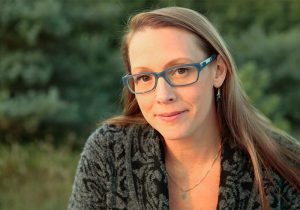The latest in-depth studies from CCRC, describing the journeys of AACC Pathways colleges successfully scaling guided pathways reforms, are receiving a lot of attention for good reason. In documenting the incredibly hard work undertaken by a diverse group of colleges that are redesigning programs, processes and systems at scale—while helping everyone at the institution think in different ways about how to support success for students—the research reports highlight a common set of themes that should focus the attention of reformers. One of the clearest of those themes is the need for deep, ongoing engagement of faculty as true partners in the work.
At Sova, we believe that the creative energy of faculty—who spend the most time with students—is essential for scaling and sustaining the real change students deserve and our country needs. The reports serve both as validation and as a rallying call for their more authentic engagement.
Hundreds of institutions have committed themselves to making structural changes required for the implementation of Guided Pathways practices, but only a fraction of those are actually implementing the most essential practices at scale. What’s the difference? Our experience, illustrated repeatedly in the CCRC research, is that difference comes not just in the commitment to scale and the quality of visionary leadership from the top, but also in the quality of implementation in the context of that commitment.
A key determinant of progress that cuts across both scale and quality of implementation is the role and experience of faculty. When faculty are engaged early, often, and authentically (i.e. before key decisions are made, not after), and when they are prepared and supported to bring their passions to the complex work of student-success reform, truly impressive results for students can be achieved. Whether it’s through cross-disciplinary dialogues in which faculty bring their expertise to collaborative work around creating clear programs for students, or through high-quality professional development experiences that build the confidence of faculty members to creative powerful learning experiences that meet the evolving needs of today’s students, the research provides countless examples that show the fundamental importance of faculty leadership in guided pathways.
The examples and CCRC’s report highlight, again and again, that holistic reforms take years to seed, cultivate and bring to fruition in the form of a wholly redesigned experience for students with evidence of stronger outcomes. Such long-term work requires not just visionary leadership from the top, but a reservoir of commitment on the part of faculty that cannot be compelled from outside but only sustained through internal motivation.
SOVA’s partnership with ACUE is aimed at supporting the conditions for scaling deep and meaningful engagement of faculty as creative drivers of guided pathways. Ensuring that those closest to students have a rich understanding and strong sense of purpose around employing evidence-based strategies to create clear, coherent, well-supported learning journeys for students is an indispensable aspect of scaling student-success reform. As the members of the college community who have the greatest influence over the student experience, we’re honored and excited to support faculty through the co-creation of this new certificate with a concentration in Guided Pathway’s reform. In the year-long R&D that’s now underway, ACUE is doubling down on its proven approach of combining the most important insights and evidence into a certificate experience that is controlled locally by faculty in the context of peer learning communities.
Hope, efficacy, resilience and optimism, the components of psychological capital that play a significant role of internal motivation, are factors that are impacted first and foremost by work environment. Too many faculty members in America, particularly those in access-oriented public colleges and universities on the front lines of the fight for the future of the American middle class, feel beleaguered and disrespected. In most of the institutions where we work, psychological capital is flagging and the burden is on institutional leaders at multiple levels to build a shared sense of purpose and mutual support befitting the ambitious student success goals they’ve set for themselves.
Alison Kadlec, PhD
Founding Partner, Sova
Dr. Kadlec specializes in building cultures and climates for innovation in higher education and workforce development. She has worked with dozens of colleges and universities across the country with the U.S. Department of Education, state policymakers and system leaders in more than half the states in the U.S. to support the capacity of institutional leaders and faculty at every level on behalf of student success.

